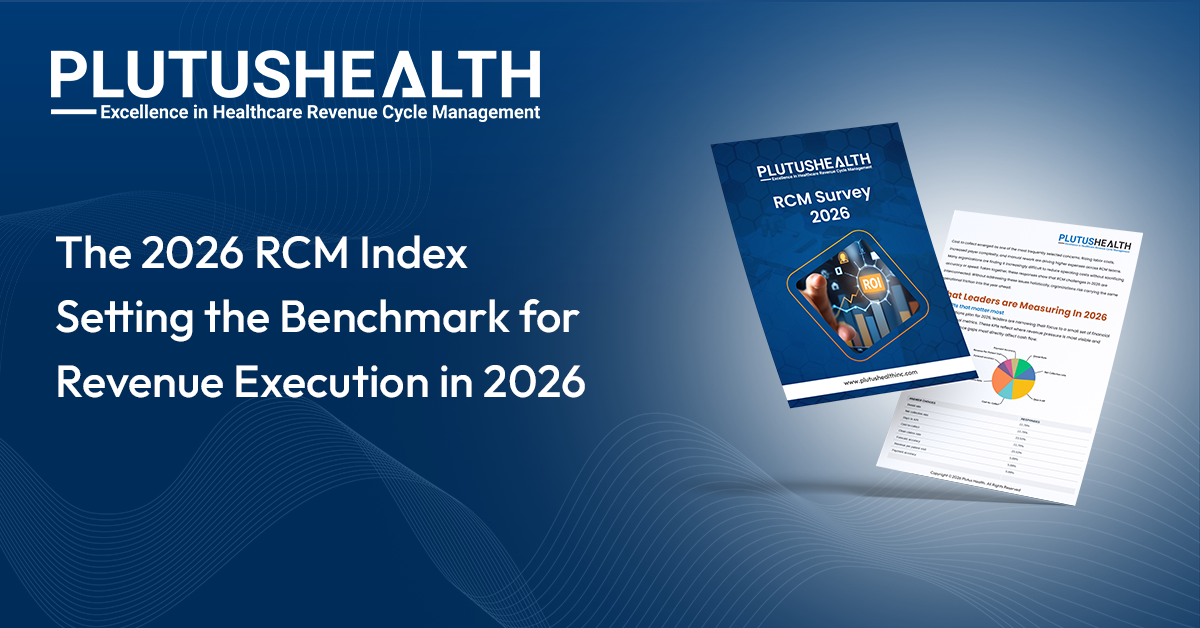Prior Authorization for ASC: Need, Importance, and Challenges
Prior authorization is a critical process for ASCs. 33% of the healthcare providers said they faced issues due to prior authorization. If prior authorization is not obtained, ASCs lose payment, thus affecting the cash flow and overall revenue. In the blog, you will learn more about prior authorization for ASC, its need, importance, and challenges.
In this blog:
- What is Prior authorization?
- Why is Prior authorization important in ASC?
- Challenges faced by ASCs due to prior authorization
- Tips to improve the ASC prior authorization process
Healthcare providers said there was a significant reduction in patient satisfaction due to delays in prior authorization.
“Streamlined Prior authorization process helps ASCs reduce administrative burden, with increased utilization, high denial rates, financial implications, and negative effects on patient satisfaction,” - Robert Adams, prior authorization expert at Plutus Health.
What is Prior Authorization?
The utilization of prior authorization in ASCs has been on the rise. A report by Becker’s ASC says that 79% of medical groups have increased their prior authorization requirements since 2022.
Prior authorization refers to the approval process payers require before a specific medical procedure can be performed in an ASC setting. It involves submitting detailed documentation and clinical information to demonstrate the medical necessity and appropriateness of the proposed procedure/medical treatment.
Why is Prior Authorization important in ASC?
Striking a balance between controlling costs and ensuring efficient & timely care remains a critical challenge for ASCs and healthcare providers. Prior authorization helps ASC billing and to create a healthy cash flow without hampering patient care.
Ensures medical necessity
Prior authorization helps ASCs ensure that the medical procedures performed are medically necessary. ASCs need to submit detailed documentation and clinical information to the payers. Once all the documents are received, payers evaluate whether the proposed procedure is appropriate and justifies coverage.
Controls revenue lost loss
Prior authorization can be a cost control measure for ASCs. Prior authorization helps to know the amount payers will reimburse and the amount you must collect from the patients. ASCs can take consent for payment from the patient before they start the treatment. Thus, preventing the risk of lost revenue post-treatment.
Utilization management
Prior authorization helps manage the utilization of healthcare services in ASCs. ASCs can do optimum utilization management, resulting in saving efforts and costs. A report by the American Board of Family Medicine said that prior authorization led to a 12% reduction in the use of targeted healthcare services.
Reduced administrative burden
Managing denials is much more complicated than obtaining prior authorization before physician meets the patient. Errors in ASC billing and coding lead to prior authorization denials resulting in a huge revenue loss to the practice. The staffing requirement for prior authorization is also less. It takes more FTEs for detecting errors and appealing the claim post denials. Streamlining the prior authorization process reduces the administrative burden for ASCs and helps their staff to focus more on patients.
Tackle variation in requirements
Prior authorization requirements can vary widely among insurance companies and even within different plans of the same company. ASCs should take authorization before the treatment as it will help them streamline their revenue. Bringing prior authorization as an integral part of the RCM process especially in ASC medical billing helps practices understand all the rules and demands of the payers. Understanding payers better help to tackle variation in requirements.
Challenges faced by ASCs due to missed prior authorization
82% of healthcare providers said prior authorization is extremely burdensome. ASCs face numerous challenges due to prior authorization. These challenges help ASCs understand the importance of streamlining and improving the prior authorization process.
Delays in patient care
If prior authorization is not taken on time, it can lead to delays in patient care. 87% of the healthcare providers said that delay in prior authorization hampered their patient care resulting in future complications.
Increased costs
ASCs incur additional costs associated with delays in prior authorization. The administrative tasks, staff time, and resources required for prior authorization increase. ASCs need to submit and manage authorization requests contributing to higher operational expenses.
Denials & appeals
ASCs frequently encounter prior authorization denial requests. These denials need appeals, adding further administrative burden to ASCs. Denials potentially cause delays in patient care and reimbursement.
Impacted patient satisfaction
The prior authorization process can negatively impact patient satisfaction. Long wait times, uncertainty regarding coverage, and potential delays in accessing necessary care lead to patient dissatisfaction.
Potential treatment changes
Alternative treatments affect the optimal course of care for patients. In some cases, prior authorization requirements may lead to changes in treatment plans. ASCs need to alter procedures or choose alternative treatments based on insurance company guidelines.
Tips to improve the ASC prior authorization process
"Struggle of collecting payment for the services provided to patients in ASC is never-ending. Streamlined prior authorization is important to ensure right and prompt payments."
Collect all the information and documents from the patients
ASCs should first collect all the information and documents from the patients before they connect with payers. Prior authorization experts then can collect all the critical information about the surgery and patients. The report includes name, date of birth, social security number, insurance details, contact information, surgery date, surgeon name, procedure type, and diagnosis.
Treat all the old patients like new patients
A patient’s insurance and personal information change with time. ASCs should verify the patient information on every visit to avoid prior authorization denials and lost revenue.
Know the payer preference
ASCs should connect with all the payers to understand their preferred mode of prior authorization communication (e.g., message, email, call). Working on the preferred mode helps to speed up the process.
Timely verify patient benefits
ASCs need to verify patient benefits by reaching out to the insurance companies 48 hours before they start offering the treatments. The patient benefits for primary and secondary insurance should be verified between 2-14 days. ASCs should keep a small window for benefit verification as these benefits can change with time.
Patient cost estimator
Empowering your staff to confidently discuss costs up front, improving point-of-service collections while offering a more transparent and positive patient experience.
Account for a common surgery practice
It is vital for ASCs to preauthorize documented/planned procedures. Healthcare providers can modify the treatments depending on the patient’s condition. Most payers allow updates in the procedure/treatment, while few don’t. There is a high chance that procedures might change, so ASCS needs to communicate with payers to avoid revenue loss.
Stay updated with changing payer requirements
It is common for insurance companies to change their prior authorization requirements. ASC billing and coding services help practices constantly stay in touch with the payers and stay updated with their guidelines. Identifying any revised or new rule changes helps ASC prevent huge revenue loss and compliance risks.
Provide proper staff training
Prior authorization is highly complex. It requires expertise in the complete process to ensure timely payments. ASCs should provide their prior authorization staff with adequate training to prevent payment denials. ASCs should have a team of experienced professionals who closely observe the prior authorization process to avoid oversights and mistakes.
Monitor performance
ASCs should carefully audit and monitor the performance of the prior authorization team. If there are rising concerns like prior authorization denials or delayed payments, analyze the process and work on finding appropriate solutions. Finding the cracks in prior authorization requires experience and training. ASCs should ensure their staff is trained accordingly.
How can Plutus Health help with Prior authorization?
Plutus Health is the leader in healthcare revenue cycle management services. We have 15+ years of experience in providing Ambulatory Surgery Center billing services. Our experts have helped 1000+ ASCs in the prior authorization process to reduce their denial below 5%. Plutus Health is connected with most payers and can speed up your authorization process to 3X. Connect with our experts here to know more about our prior authorization process and how we can help to tackle all your challenges.




















































